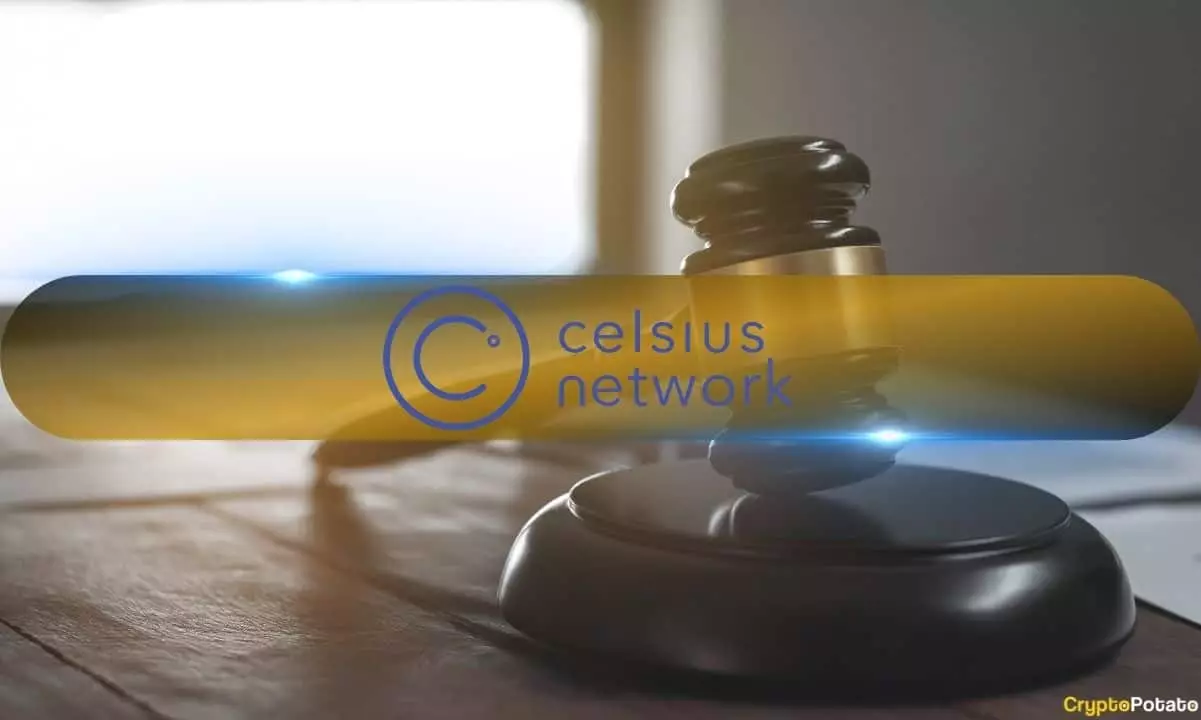In an unprecedented legal maneuver, the Southern District of New York Bankruptcy Court has sanctioned Celsius Network’s unconventional approach to serving legal notices through non-fungible token (NFT) airdrops. As the cryptocurrency platform grapples with insolvency, it is embroiled in the complex task of recovering assets allegedly misappropriated through fraudulent digital transfers. With traditional methods of legal communication proving ineffective due to the climate of anonymity that blankets blockchain transactions, the court’s innovative ruling signifies a new frontier for legal processes in the cryptocurrency sphere.
Celsius Network, which falls under significant financial distress, is actively pursuing remediation for creditors adversely affected by fraudulent digital transactions believed to have been sent to untraceable wallets. The intricate web of anonymity surrounding these transactions presents a considerable challenge; conventional legal channels falter where cryptocurrency dictates the custodianship and movement of assets. The agency’s decision to utilize NFTs for delivering legal notices not only addresses these challenges but also highlights the potential for blockchain technology to reshape traditional legal frameworks.
Under the court’s ruling, each NFT will function as a unique conduit for legal notifications, embedding vital hyperlinks to comprehensive legal complaints and ancillary documents within a decentralized framework. These NFTs will be directly dispatched to the digital wallets implicated in the fraudulent transactions, ensuring that the intended recipients receive notice through a medium they are already familiar with. This development mirrors a transition seen in earlier digital communications, harkening back to the days when email began to gain acceptance as a legitimate form of legal correspondence.
In facilitating this groundbreaking approach, Celsius has sought the assistance of FTI Consulting, a firm tasked with ensuring that the NFTs are effectively delivered and accessed. Through meticulous on-chain tracking, FTI will gather evidence regarding the date and time of access, as well as distinguishing between genuine users and automated bots. This level of scrutiny is essential in establishing the authenticity of recipients, thus adhering to the due process requirements laid out under New York law.
The ruling is not simply a response to the unique challenges posed by the digital economy but serves as a critical touchstone for how the legal system may evolve alongside technological advancements. The Southern District of New York found that under certain circumstances, such as those presented by Celsius Network, conventional methods of serving legal notices can be deemed impractical. Traditional channels—like sending correspondence to physical addresses—fail in this landscape, primarily due to the identity obfuscation that comes with cryptocurrency transactions.
Judge Martin Glenn’s ruling emphasizes the need for the legal system to adapt to modern realities, recognizing that blockchain wallet addresses could effectively serve a similar role as email addresses did in previous years. The forward-thinking judge referred to the Celsius Network’s proposal as “the best possible way” to notify defendants, showcasing a willingness to embrace innovative solutions and integrate them into existing legal frameworks.
As Celsius Network leads the charge with this novel approach, one must ponder the broader implications for cryptocurrency governance and the evolving relationship between emerging technologies and the rule of law. The acceptance of NFTs in legal proceedings could potentially reshape not only asset recovery strategies in bankruptcy cases but also how entities hold each other accountable in the crypto space.
Moreover, this ruling sets a precedent that could lead other financial entities dealing with similar issues to explore the benefits of digital asset-based communication. The court’s acknowledgment of the methods employed by Celsius highlights a significant evolution in the judicial perspective regarding technology-driven solutions—a recognition that may pave the way for far-reaching changes in legal practices as they pertain to the digital economy.
The Southern District of New York’s endorsement of Celsius Network’s NFT-based approach illustrates the increasing intersection of technology and law. As both sectors continue to evolve, this pioneering model could serve as a blueprint for addressing future legal challenges in the digital sphere, promoting a transformative milieu that acknowledges and utilizes the nuances of blockchain technology in compliance and accountability efforts.


Leave a Reply